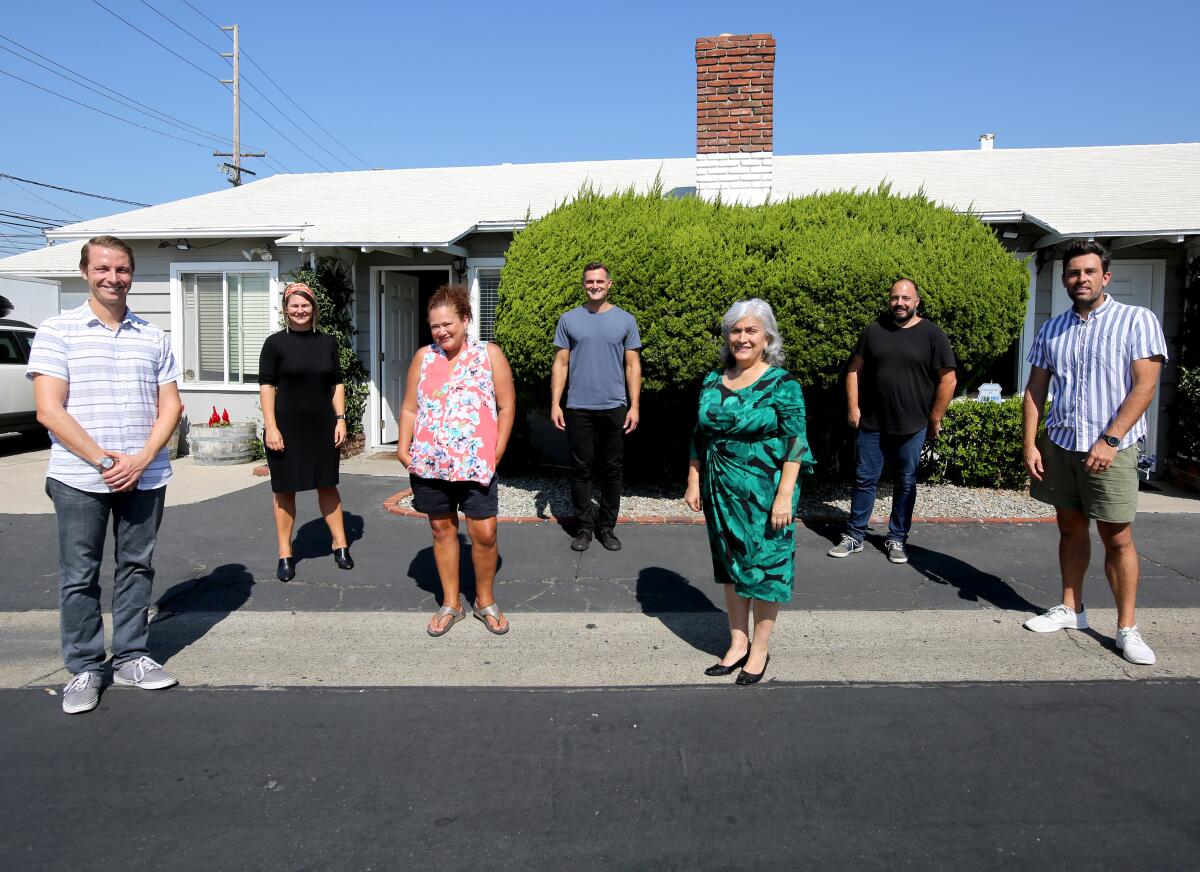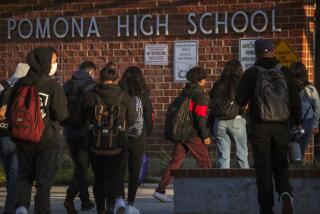Church-led ‘Enough for All’ raises $700,000 for Costa Mesa residents in need, but is it enough?

- Share via
Give as you can and ask as you need. Those were the simple instructions behind “Enough for All,” a recent effort Costa Mesa churches undertook to raise and distribute money to the city’s most vulnerable residents during the COVID-19 pandemic.
Costa Mesans in need — many of them residents in the U.S. illegally who file taxes but are not eligible for federal stimulus funds — could apply for and receive relief for rent, medication, groceries or other necessities.
“The idea is if everyone gives, there’s enough for everyone,” said Christine Nolf, associate pastor at Redemption Church, who heard of a similar program in Memphis, Tenn., and brought it before church leaders. “God provides enough for everyone, and it’s our responsibility to steward all our resources so no one goes without.”
Nolf put her faith behind that theological belief but had no idea how swift and powerful the response, or the need, would be.
Redemption joined forces with Canopy Church and the Crossing Church and created an advisory board that would define program parameters, pool $80,000 in seed money and lead the fundraising effort. Then the donations came pouring in.
Several area churches urged congregants to spread the word. From April to September, group members amassed $700,000.
But as soon as the project began April 23, requests came with equal rapidity. In the first 24 hours, Enough for All had received 163 applications.
They came from mothers and fathers who’d both lost their jobs and had children to feed. Tenants confessed they didn’t know what they would do when a statewide eviction ban ended and months of back rent came due. Diabetics wrote about not being able to afford lifesaving medication.
Volunteers sent out funds as quickly as they came in, trying to help as many as possible.
Redemption Church congregant Mario Landa used his Spanish-language skills to update applicants on the status of their petitions. While they waited, he heard their stories and their fears and said many seemed to take comfort in simply being heard.
“At the beginning, it was definitely overwhelming,” the Garden Grove resident said. “But as we started to see the amount of people generously giving to help out their neighbors — it was impressive, and it was also … the word that comes to mind is heartwarming, but it goes beyond that.”
After receiving 800 requests for assistance, advisory board members in May made the difficult decision to stop accepting applications.
“It felt not fair to keep it open if we were not able to respond,” Nolf said. “If more money came in, we could open it. But we’d rather close it than, especially in this time, give people a false sense of hope.”
Organizers say Enough for All has helped 575 Costa Mesa residents and families, even though they still need to raise an additional $10,000 to finish processing requests granted before the cutoff.
Birdi Kumar, a Costa Mesa resident and volunteer with Canopy Church, says members operate under a house-church model, forgoing the overhead of a brick-and-mortar institution so they can use their tithe money to help the greatest number of people in need.
So when Nolf reached out to her about an effort to help people struggling during the pandemic, Kumar said it was a no-brainer.
“This was an actual tragedy moment, where we needed to give people relief. It was easy, it was obvious and it was immediate,” she said. “This is what our lives are supposed to be as believers, serving and loving those community members who are in need.”
Despite the promise imbued in its very name, Enough for All turned out to be no match for the immense need of Costa Mesa’s most disadvantaged residents. But church members remain undaunted. Participants said a bigger, more lasting resource has been created: a connection among those who asked and those who gave that will continue throughout, and hopefully past, the pandemic.
Kumar said there have been other, less tangible benefits as well.
“It lets someone know somebody thought about them at a time when the government didn’t, or their employer didn’t,” Kumar said of the project. “You’ve shown someone there is good in the world, that miracles do happen.
“That gives me hope for the work that I’m doing and the work I hope to do, to help people realize [for themselves] I do have enough, and I have enough for all.”
Cardine writes for Times Community News.
More to Read
Sign up for Essential California
The most important California stories and recommendations in your inbox every morning.
You may occasionally receive promotional content from the Los Angeles Times.











